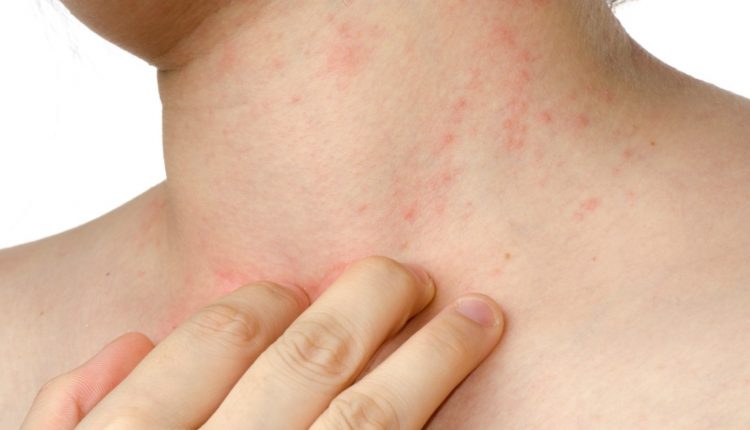
Stress dermatitis: causes, symptoms and remedies
Stress dermatitis: increasingly often moments of apprehension, stress and anxiety can trigger manifestations on the skin with symptoms typical of dermatitis
This happens because the skin somatises psychological discomfort, the effects of which produce rashes and temporary inflammations on the face, neck, arms, hands and feet, which disappear spontaneously after a short time.
Acting simultaneously on mind and body is the key to solving the problem.
How stress dermatitis manifests itself
Stress dermatitis is a sudden inflammation of the skin that occurs without any particular triggering factors, with symptoms similar to allergic eczema or simple contact dermatitis:
- intensely itchy pimples, spots and blisters;
- redness and a sensation of localised heat and burning;
- skin dryness and excessive desquamation;
- abrasions and crusting due to scratching.
The skin reactions mainly affect the face, neck, scalp, arms, hands, feet and even the eyelids, and indiscriminately affects both women and men overwhelmed by severe stress and psychological fatigue.
The duration and intensity of the epidermal inflammation can be more or less variable: it can appear suddenly and disappear after a short time, or be so bothersome that it disturbs sleep.
What causes stress dermatitis?
The mechanisms that trigger stress dermatitis are not yet fully understood but, generally, the causes are to be found in an excessively stressful lifestyle.
In contrast to contact dermatitis – in which certain allergens, stinging substances, drugs or cosmetics cause the extreme sensitivity of the skin – it is only the excessive accumulation of tension, stress and worries that triggers the reaction.
Daily responsibilities, work commitments, organisation of family, school and interpersonal relationships, but also traumatic events and major changes are all potential stress factors to which we are constantly exposed without even realising it.
In the long run, this ends up compromising our psychophysical balance with consequences also on the complex mechanisms regulating hormones and mediators of inflammation.
The skin thus represents the outlet valve for particularly stressful periods, sometimes aggravated by the use of the wrong cosmetics, exposure to cold or damp weather, and constant washing and rubbing.
How to treat stress dermatitis
Generally, stress dermatitis tends to disappear spontaneously after a short period, without the help of specific therapies.
However, for a correct diagnosis, the opinion of a dermatologist capable of recognising reactions attributable to situations of psychophysical overexertion and prescribing some specific examinations to exclude the interference of other factors such as exposure to external agents, endogenous causes and immunological alterations is necessary.
The specialist will then recommend as treatment for stress dermatitis
- eliminate sources of stress as much as possible
- slow down the pace by reducing worries and commitments;
- engaging in sport or regular physical exercise to relieve stress;
- engage in activities such as yoga and meditation to promote relaxation;
- eat a balanced diet with the right nutritional intake of stress-relieving substances such as potassium, iron, magnesium and calcium;
- reduce consumption of stimulants such as alcohol and coffee;
- maintain a healthy lifestyle by quitting smoking;
- spend more time outdoors in contact with nature.
To soothe the annoying symptoms of dermatitis, on the other hand, it will be sufficient to apply a soothing cream based on medicines that help temporarily relieve pain, inflammation and itching.
It will also be suggested to reduce washing and cleanse with gentle, non-foaming products to reduce discomfort, as well as maximise exposure to sunlight to soothe itching.
Read Also:
Emergency Live Even More…Live: Download The New Free App Of Your Newspaper For IOS And Android
Dermatology, What Is Vitiligo?
Atopic Dermatitis: Treatment And Cure
Psoriasis, A Disease That Affects The Mind As Well As The Skin
Allergic Contact Dermatitis And Atopic Dermatitis: The Differences
Adverse Drug Reactions: What They Are And How To Manage Adverse Effects
Symptoms And Remedies Of Allergic Rhinitis
Allergic Conjunctivitis: Causes, Symptoms And Prevention
What Is And How To Read The Allergy Patch Test
Eczema Or Cold Dermatitis: Here’s What To Do
Psoriasis, An Ageless Skin Disease
Clinical Manifestations Of Atopic Dermatitis



